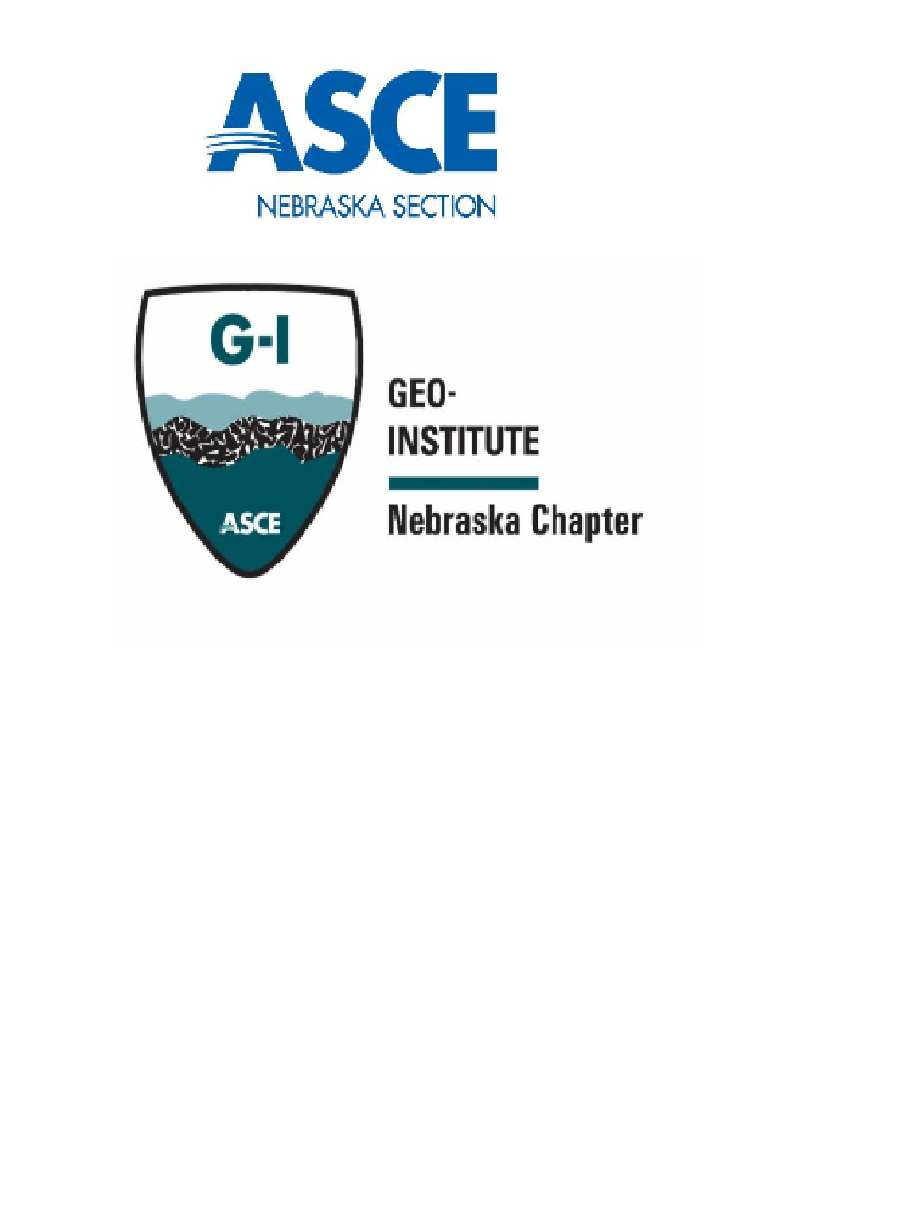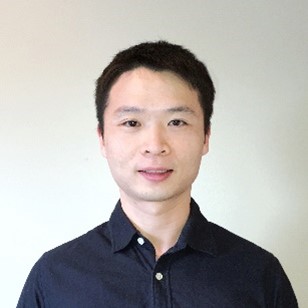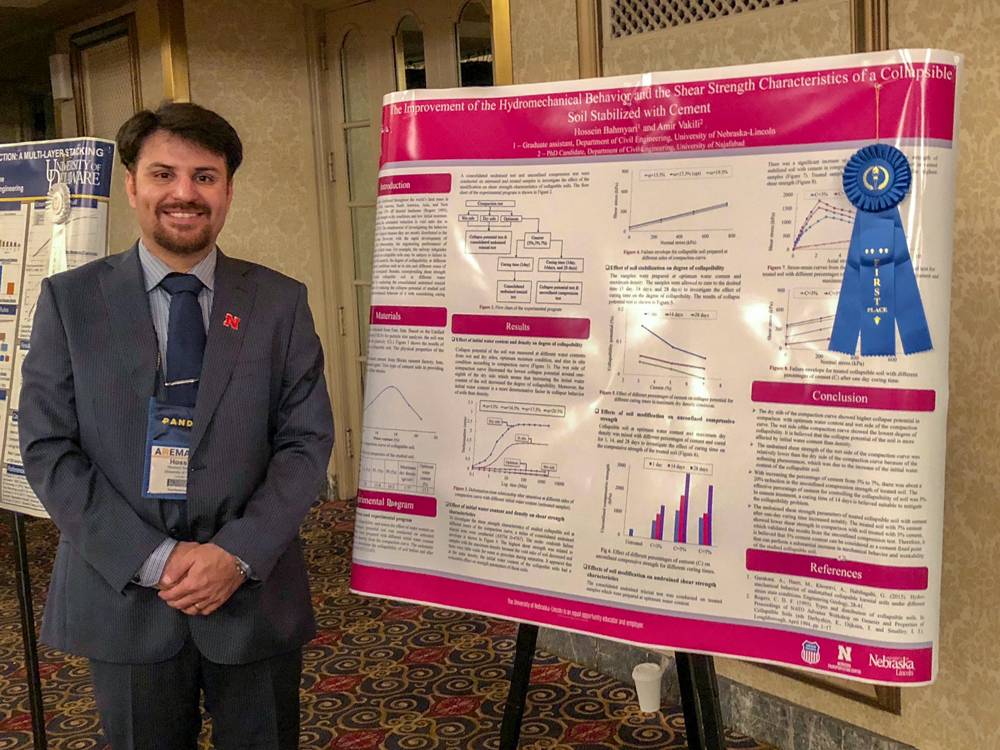
38th Annual Geotechnical Seminar
GEO-Omaha 2021
FEBRUARY 5, 2021
SCOTT CONFERENCE CENTER 6450 PINE STREET
OMAHA, NEBRASKA
PROGRAM DESCRIPTION
The annual geotechnical seminar provides a forum for the presentation of a wide variety of geotechnical field, design, and construction-related topics. This year we are honored to have as presenters: Mr. Steve Wend land , Mr. Jacob Spinsby, Mr. Morgan Nesmith, Mr. Vic Donald, Ms. Lyndsie Janbakhsh, Mr Steftano Rignanese, Ms. Marianna Ferrara, and Mr. William Epson Please join us for what promises to be an interesting and informative program. A certificate verifying 7.5 Professional Development Hours include 1.0 hours of Ethics will be provided to registered attendees.
WHO SHOULD ATTEND
All professionals who are involved in geotechnical
exploration, design, construction, or observation.
This would include:
• Engineers/Geologists
• University Instructors
• Technicians/Contractors
INFORMATION
ADMISSION to the seminar is by registration. To ensure admission, complete the registration process early. To register, go to http://www.neasce.org/conferences and click on the GeoOmaha registration link.
REGISTRATION FEE is $175.00 (in-person) and
$150.00 (virtual)on or before February 1, 2021, $195.00 (in-person) and$170.00 (virtual) after this date. Fulltime students are free to attend virtually. Proceeds benefit the ASCE funded Peck/Benak Engineering Achievement Scholarship, Future City Competition, and the local ASCE Student Sections.
THE REGISTRATION FEE covers technology for live streaming, coffee breaks, lunch and handout material.
REFUNDS will be made if the conference is canceled or if the applicant cancels no later than five working days prior to the conference date.
Registration is now online: Please go to http://www.neasce.org and click on the "Programs & Events, Current conferences" link to take you to registration.
This event is available for either in-person attendance or virtual attendance. Some or all of the speakers may present virtually. Depending on the COVID-19 health and safety guidelines at the time of the event, a face covering and social distancing procedures may be required for in-person attendance.
Currently limiting venue capacity to 50% in person (150 seats), and subject to change depending on local health and safety guidelines. If gathering sizes are restricted to less than 25% of the rated occupancy rate, this event will be held virtually only. Partial refund for those that paid for in-person registration if conference is held virtually only.
SPONSORED BY:
AMERICAN SOCIETY OF CIVIL ENGINEERS, NEBRASKA SECTION IN COOPERATION WITH:
UNIVERSlTY OF NEBRASKA DEPARTMENT OF CIVIL ENGINEERING AND THE COLLEGE OF ENGINEERING

